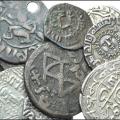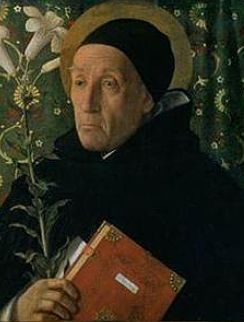287. Down to the Ground: Meister Eckhart
The scholastic and mystic Meister Eckhart sets out his daring speculations about God and humankind in both Latin and German.
Themes:
• O. Davies, Meister Eckhart: Selected Writings (London: 1994).
• J. Quint et al. (ed. and trans.), Meister Eckhart: Werke, 2 vols (Frankfurt am Main: 1993).
• J.M. Connolly, Living Without Why: Meister Eckhart’s Critique of the Medieval Concept of Will (Oxford: 2014).
• K. Flasch, Meister Eckhart: Philosoph des Christentums (Munich: 2010). English version: Meister Eckhart: Philosopher of Christianity, trans. Anne Schindel (New Haven: 2015).
• J.M. Hackett (ed.), A Companion to Meister Eckhart (Leiden: 2013).
• B. McGinn, The Mystical Thought of Meister Eckhart: the Man from Whom God Hid Nothing (New York: 2001).
• K. Ruh, Meister Eckhart: Theologe, Prediger, Mystiker (Munich: 1985).
• F. Tobin, Meister Eckhart: Thought and Language (Philadelphia: 1986).







Comments
Mysticism
Hi Peter,
thanks for the nice episode on Eckhart. We have encountered many mystic philosophers so far in the podcast, e.g. Ibn Arabi and now Meister Eckhart. Some were apparently even more mystics than philosophers. I was wondering what exactly is mysticism actually? Or what the difference between a "normal" philosopher and a "mystic" philosopher is? Are there some hints in their works that clearly indicates that this one was a mystic, the other not?
cheers!
In reply to Mysticism by Xaratustrah
Mysticism
That's a tough one! Mysticism may be even more difficult to define rigorously than "philosophy" but as a rough and ready idea I would say that for me, a mystical author is one who is committed to the idea that there is some truth or reality (could be God, but doesn't need to be) that is beyond our ability to speak of or grasp, and therefore develops non-discursive methods for somehow expressing that reality. So that could be poetic language, metaphor, and perhaps certain kinds of practice. I am writing an episode on Tantra for the India series at the moment and if Tantra is mystical, it would be in part because it is a practical attempt to connect to something we can't normally connect to. I'd be curious to know how you or others would define the term though.
In reply to Mysticism by Peter Adamson
Mysticism
well, it might be easy to say e.g. Husserl wasn't a mystic based on the subjects he was working on, but I agree that it get's more difficult when dealing with those philosophers who actually go deeper in the metaphysics and scratch on the essence/existence surface. I see the relation between speaking of a higher reality and being mystic clearly, but not the other way round. Not all pagan philosophers who believed in a divine celestial mover, or the medievals were necessarily mystics, except some of them. So there must be something more to it.
Also I am puzzled with the idea of mysticism without a central figure of truth/reality (abrahamic God or Hindu Brahman) or even atheist mysticism. I am not sure if you will be covering buddhist mysticism but I would definitely like to listen if you do (to be honest I listen to all episodes anyway, so the argument doesn't really sell :-) ) Maybe as a christmas present before India ends?
In reply to Mysticism by Xaratustrah
Indian mysticism
Well I guess some people would call Advaita Vedanta, which we alreadz covered, a mystical tradition. But perhaps you have in mind something more like Tantra, which as it happens is the script we are working on now, so you can expect to see that, though not in time for Christmas I think!
Kurt Flasch's book
Hi Peter,
Great episode! For your "Further Reading" list, there is an English translation of Kurt Flasch's book available: Meister Eckhart: Philosopher of Christianity, trans. Anne Schindel (Yale University Press, 2015).
In reply to Kurt Flasch's book by Johannes
Translation of Flasch
Now you tell me! Thanks, I'll add that above.
Meister Eckhart and Zen Buddhism
Hi Peter,
thank you for all the amazing episodes! Something I find very interesting about Meister Eckhart is that his thought is apparently very similair to Zen-Buddhism. D.T. Suzuki, a Japanese Zen-Buddhist even said that the teachings of Meister Eckhart resemble Buddhist thought “so closely indeed, that one could stamp them almost definitely as coming out of Buddhist speculations” (see Suzuki, Daisetz Teitaro. 1957. Mysticism: Christian and Buddhist. New York: Harper).
Cheers!
Add new comment